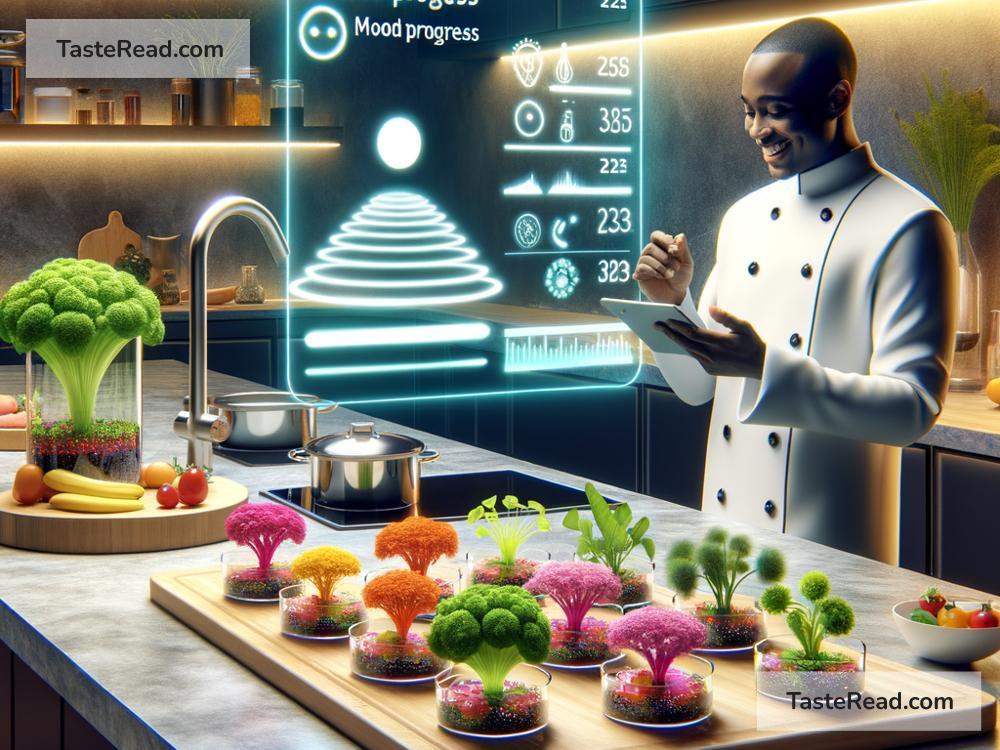The Future of Food and Mental Health: A Simple Guide
When you think about food, what comes to mind? Maybe meals with friends, a favorite dish, or a quick snack when you’re hungry. But food is more than just fuel for your body—it plays a big role in your mental health. Scientists are discovering that what we eat affects how we feel, think, and even how we cope with stress. In the future, food could help us improve our mental health in new and exciting ways.
Why Food Matters for Mental Health
Did you know that your brain uses about 20% of the calories you eat every day? Your brain works hard to keep you focused, creative, and feeling good, and it needs the right nutrients to do so. Eating healthy foods like vegetables, fruits, whole grains, and lean proteins can give your brain what it needs to function well.
On the other hand, eating too much junk food—things like chips, sweets, and fast food—can harm your mental health. These foods are often packed with sugar, unhealthy fats, and chemicals that may make you feel good for a short time but can lead to mood swings, tiredness, and even symptoms of depression and anxiety in the long run.
Today, mental health problems like depression, anxiety, and stress are common worldwide. This has led scientists to explore how food could become a “medicine” for the mind. The future of food and mental health is about finding ways to treat mental health issues through diets, special nutrients, and even technology.
Food Trends That Could Change Mental Health
Here are some food trends and developments that could impact how we take care of our mental health in the future:
1. Personalized Nutrition
One-size-fits-all diets don’t work for everyone. In the future, technology like DNA testing and gut microbiome research (studying the bacteria in your digestive system) could allow people to get personalized nutrition plans. For example, if you are prone to anxiety, your plan might include foods rich in magnesium to help calm your mind.
Personalized nutrition could also prevent mental health problems. Imagine a world where doctors recommend specific foods, like omega-3-rich fish for brain health, based on your genetic makeup or lifestyle. It might sound like science fiction, but it’s getting closer to reality.
2. The Rise of “Mood Foods”
Mood foods are already gaining popularity. These are foods and drinks made with ingredients known to improve mood, energy, and focus. For example, turmeric (found in curry) has compounds that may reduce depression. Dark chocolate contains chemicals that boost happiness, and probiotics (found in yogurt or supplements) improve gut health, which is linked to mental well-being.
In the future, we might see more companies making foods specifically designed to boost mental health. These foods could become part of daily life, like the vitamins people take every morning.
3. Gut-Brain Connection
Scientists call the relationship between your stomach and brain the “gut-brain axis.” Your gut is home to trillions of bacteria that play a big role in mental health. Healthy gut bacteria help your brain release feel-good chemicals, like serotonin, which improves mood.
Future foods might contain targeted probiotics and prebiotics designed to feed the good bacteria in your gut. This could reduce mental health symptoms like anxiety or depression and help people feel more balanced and positive.
4. Plant-Based Diets
Plant-based diets are growing fast, not just for their physical health benefits but also for mental health. Eating more vegetables, fruits, nuts, seeds, and legumes has been linked to better mood and lower rates of depression.
In the future, more plant-based options could be available, including lab-grown meat and plant-based substitutes for traditional foods. These foods could make it easier for people to transition to healthier diets that support their mental health.
5. Food Tech and Mental Health
Technology is revolutionizing food. For example, “smart” meal-planning apps can suggest foods to improve mental health based on your mood and physical activity. Some apps are already analyzing eating patterns to spot early signs of mental health issues.
The future might also involve advanced food delivery systems that provide mental health-friendly meals tailored to your needs. Imagine receiving a package of meals designed to help you concentrate during exams or relax after a stressful week.
Challenges We’ll Need to Solve
While the future of food and mental health looks promising, there are challenges. Healthy foods can sometimes be expensive or difficult to access, especially for people living in remote areas. Additionally, not everyone knows how to cook or choose healthy options. Education about mental health and food will be needed to make sure people can benefit from new innovations.
There’s also the risk of food companies marketing unhealthy products as “good for mental health.” Governments and scientists will need to monitor misleading claims to protect consumers.
What You Can Do Today
You don’t need to wait for the future to start using food to improve your mental health. Here are simple steps you can take today:
– Eat more fruits and vegetables: These are packed with nutrients your brain loves.
– Add omega-3s to your diet: Try fish, walnuts, or flaxseed.
– Stay away from processed foods: Choose whole, natural options whenever possible.
– Drink water: Staying hydrated helps your brain and body function.
Conclusion
The connection between food and mental health is becoming more important every day. In the future, advances in science, technology, and food production could help us treat and prevent mental health conditions through diet. Imagine eating foods not just to survive, but also to thrive mentally and emotionally.
Until then, small steps like eating balanced meals and staying informed can help you take charge of your mental health. After all, every bite counts when it comes to feeling your best!


